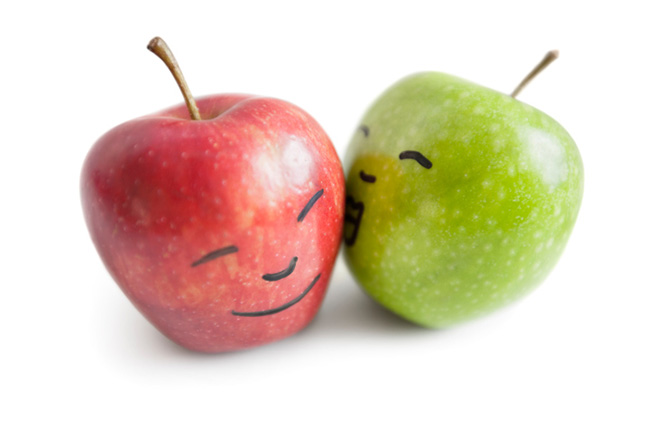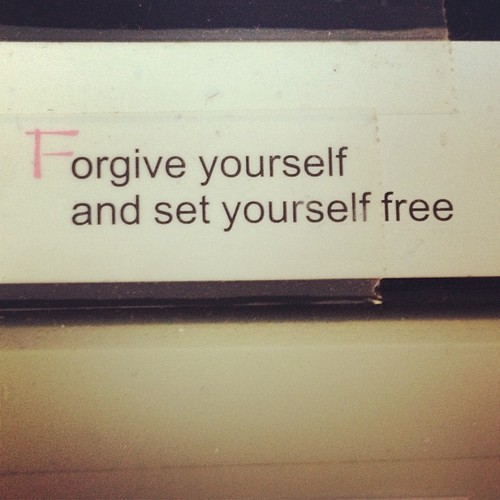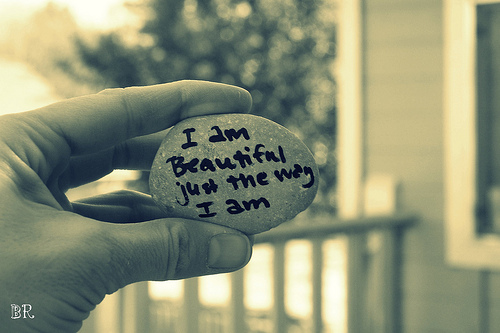 Today’s guest post is by Davey Wavey’s good friend and spiritual weight release coach, Diane Petrella.
Today’s guest post is by Davey Wavey’s good friend and spiritual weight release coach, Diane Petrella.
“I look so fat in this dress!”
“It’s so hard to lose weight.”
“I’m a hopeless case.” ?
Sound familiar?
While we all need to vent our feelings, staying stuck in negativity isn’t venting at all. Rather than releasing emotions, it stirs up your frustration and poisons your mind and body. Your weight-loss journey becomes harder than it needs to be when you weigh yourself down with pessimism and join in negative conversations with friends. But when you make the decision to end the complaining, your journey—and your body—become lighter.
See For Yourself
Every word you think and speak produces a physiological reaction in your body. Try this simple exercise and notice what happens:
Get yourself comfortable and take a few deep breaths to settle yourself. Now, with your eyes closed, repeat the following phrases silently to yourself while noticing the sensations in your body:
“I hate my body.”
“I feel disgusting.”
“I’m a loser.”
Now, bring your attention back to your breathing to clear those thoughts from your mind. Close your eyes again, and repeat the following while noticing the sensations in your body:
“I am gentle with myself.”?
“I am kind to my body.”?
“I am strong.”
Open your eyes. Most people notice some tension in their body when they say the first set of phrases and a relaxing sensation with the second. What about you?
A diet of toxic words and self-abusive insults harms your body and dampens your spirit. But when you make a conscious decision to feed yourself loving words, your spirit lightens and your body relaxes. You stop fighting with yourself and open the way for a peaceful—and more successful—weight loss journey.
Word Power?
To release weight with less effort, be mindful of how you speak. Stop repeating unkind, disrespectful words to yourself and replace them with encouraging and kind words. I know… this may feel hard to do at first because you are so used to talking to yourself in a negative way. Changing any habit takes time. The important thing is to make the commitment to speak to yourself with compassion and then make it a practice that you develop. For example, if you catch yourself speaking disrespectfully to your body as you look in the mirror first thing in the morning or try on outfits for a special occasion, apologize to it by saying:
“I’m sorry. Please forgive me for speaking to you that way.”
An apology to your body reminds you of your commitment to speak to yourself with kindness. Then, give your body a supportive message such as, “I intend to take good care of you” or, if this feels natural, “I love you” or “I want to love you.” You can also gently say the following words as a kind of mantra to infuse your body with calming energy: peace, love, ease, relax. Think of these phrases and words as anchors to help you stop, shift your focus and regain your confidence and strength.
Exit the Pity-Party
I know… we can all fall into complaining sessions with friends. And to a point, venting helps. But beyond the initial bonding through shared experiences or just needing a friendly ear to release frustration, complaining with others serves no useful purpose. If anything, these conversations weaken you. They taunt you to the cookie jar by justifying the limiting belief that, “Everyone agrees with me that it’s hard to lose weight, so what’s the point?”
But remember this: YOU are the point. Your health, your future, your dreams.
And when you join in toxic complaint sessions with friends and co-workers about how hard is to lose weight, how difficult it is to avoid sweets, or how impossible it is to find the time to exercise, you lose the point of you and your health. Reclaim your power and commit to no longer participate in negative conversations, in your head and with others. When you find yourself with people eager to jump on the complaint bandwagon, practice this: Say nothing, change the subject or, when possible, leave.
As you release the habit of complaining and speak supportive, encouraging words, you lighten your mind and heart. And when your mind and heart feel lighter, your weight loss journey becomes more peaceful… helping your body become lighter as well.
____
P.S. If weight loss is one of your goals, download The Davey Wavey Weight Loss Program, co-written by Diane Petrella. By building a stronger relationship with your body and through proper nutrition and a strategic exercise program, you’ll create lasting and sustainable weight loss with ease.














 Do you know how to make your weight loss journey easier?
Do you know how to make your weight loss journey easier?

